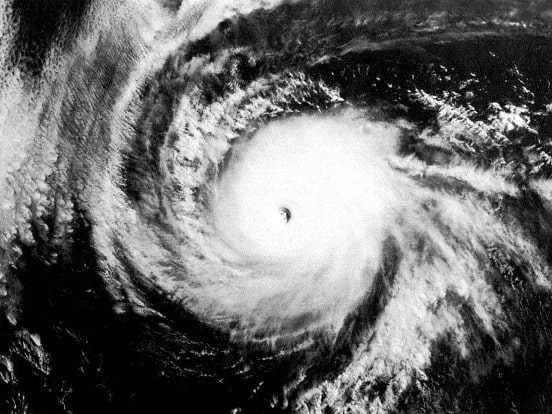Hurricanes help in combating climate change by capturing carbon, says study

 A new study in environmental science from Duke University shows that while hurricanes and tropical storms can cause widespread destruction and flooding they can also have a tremendous positive effect on the carbon uptake of forests by capturing carbon. With the massive storms that occur in the Southeastern United States effectively capturing hundreds of times more carbon than the total annual emissions from all the vehicles in the U.S.
A new study in environmental science from Duke University shows that while hurricanes and tropical storms can cause widespread destruction and flooding they can also have a tremendous positive effect on the carbon uptake of forests by capturing carbon. With the massive storms that occur in the Southeastern United States effectively capturing hundreds of times more carbon than the total annual emissions from all the vehicles in the U.S.
Earlier research on tropical cyclones – low pressure systems of tropical or subtropical origin resulting in heavy rainfall – had declared them to have a negative effect on carbon uptake, due to their high winds wreaking havoc on trees and vegetation in a given area. But according to Lauren Lowman and Ana Barros of Duke’s Department of Civil and Environmental Engineering, these studies did not take into account the long term positives that come with the storms’ large amounts of rainfall, including added soil moisture which plays a huge role in the growth of vegetation and thus in the ability of a region’s forests to act as carbon sinks.
“Thunderstorms associated with tropical cyclone (TC) convection provide an important service to coastal and inland areas by delivering freshwater resources, with the heaviest rainfall from TCs occurring near and up to 500 hundred kilometers away from the eye-track of the storm,” say Lowman and Barros whose research has been published in the Journal of Geophysical Research: Biogeosciences.
Researchers tracked the ecological and hydrological impacts of Southeastern U.S. tropical cyclones between the years 2004 and 2007 and calculated the overall effect these had on forest rates of photosynthesis and carbon uptake. One large storm that made landfall in the Carolinas in 2006 was found to significantly increase plant productivity at a time when the region was suffering from severe drought.
And with climate change expected to only increase the susceptibility to drought of areas like the Southeastern U.S., the role of tropical storms in combating drought will become even more important.
“This study shows that beyond their association with natural hazards, TCs are an important mechanism of terrestrial freshwater recharge that is closely tied to regional carbon assimilation capacity in the SE U.S.,” say the researchers. “If droughts do become worse and we don’t have these regular tropical cyclones, the impact will be very negative. And regardless of climate change, our results are yet one more very good reason to protect these vast forests.”
Projections show that climate change will lead fewer but more intense tropical storms during the upcoming decades. Canada, while currently not the tropical cyclone hotspot that is the Southeastern U.S., will experience more tropical storms in the upcoming decades, especially in Atlantic Canada, while the whole country is expected to face more frequent extreme weather events in the form of droughts, heat waves and floods. Between 1948 and 2007, temperatures in Canada have increased by more than 1.3 degrees Celsius, a rate of warming about twice the global average, while the Great Lakes lost more than 70 per cent of their ice cover between 1973 and 2010.

